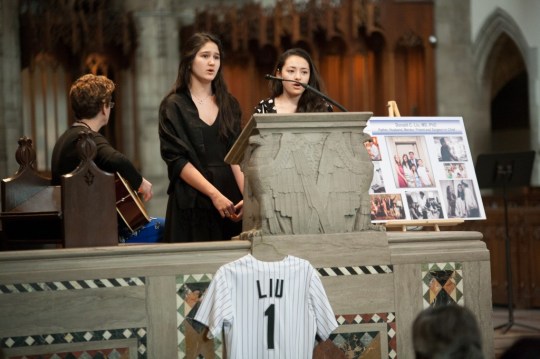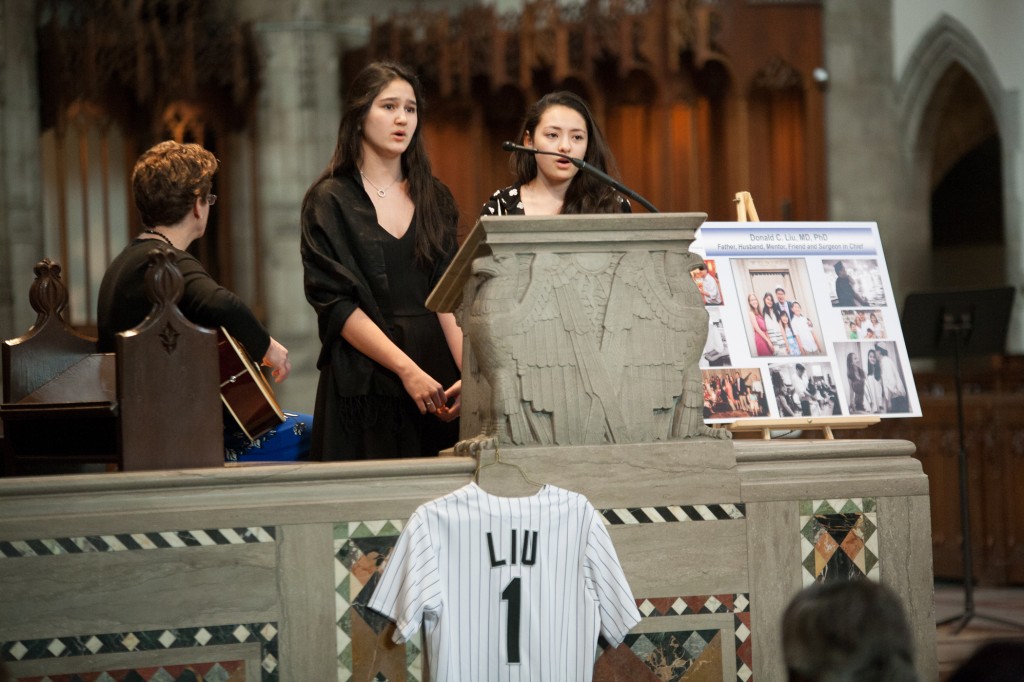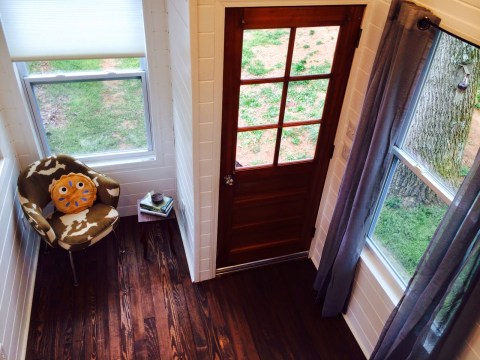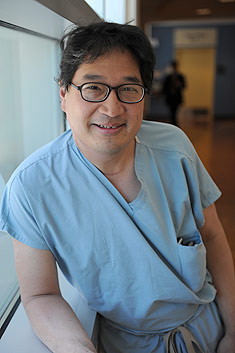
Two years ago, Sicily Kolbeck, 12, of Marietta designed a 128-square-foot house as part of a school project that she planned to work on with her dad.
But before the two could complete the tiny house, her father was killed in an automobile accident. With him gone and with grief overcoming his daughter, the construction came to a halt.
Coping with the loss of a close friend or family member is among the hardest challenges that a person can face. The challenge is even more difficult when a child loses a parent.
JoAnna White, of Georgia State University’s Department of Counseling and Psychological Services, says that in the initial stages of grief, activities that brought pleasure are often no longer of interest, especially when they are closely related to the deceased parent.
“When a child loses a parent, it is the most significant and difficult loss that they could experience, and they will deal with it the rest of their lives,” says White.
Children in this situation need constant, loving support from the surviving parent and other family members who are also grieving.
If this support is provided, eventually children can get beyond the inward stage of grief and begin to focus on their lives again. None of this is simple or easy, but if children can get there — giving of themselves outwardly, rather than handling everything inwardly — that is therapeutic in itself, says White.
“Following any parental loss, we have minimal mental energy in the beginning,” says White. Later, giving back can be very beneficial, she adds. And that’s what happens as part of the healing process.
As Sicily Kolbeck recounts in a recent Huffington Post blog, she hoped that completing the house would begin to provide the life skills that really mattered, such as using tools for construction.
Ultimately, with the help of the community and a few friends of her father’s, her tiny house was completed. Only then was Sicily ready to move on with her teenage life, she says, as well as to move from Georgia to Maryland with her mother.
Building new connections
“The deeper you love, the longer you grieve,” says Trudy Post Sprunk, a licensed marriage and family therapist in the Atlanta area.
“For children, if there is a close relationship, the longer the healing process will take,” Sprunk says. This is especially true with the traumatic death of a parent.
Research shows that most people can recover from loss on their own. But it takes time, social support and encouraging healthy habits.
In Chicago, Genevieve Liu’s father, Donald, a pediatrician, died in August 2012 after trying to rescue two children caught in a strong Lake Michigan current. The two children survived.
It’s a tragedy that Genevieve will never forget. But she wanted to go beyond just remembering. She wanted to help others.
She built a website during her healing process. The site, called slapd.com, was created to provide a supportive community where users can discuss what they’re going through after the loss of a parent.
“Genevieve is an amazing and articulate individual who has found such healing in developing this website,” Dana Suskind, her mother, who is also a physician, said in a Chicago Tribune article.
Now 14, Genevieve says she was inspired by her friendship with a classmate whose mother passed away. It was after her friend’s loss when she decided to create SLAPD: Surviving Life After a Parent Dies. This is a website where young people can find a sense of community and, hopefully, some solace, says Genevieve.
“The mission is to let a lot of people who’ve lost a parent know they’re not alone and to gain strength from each other,” she says. “I think there’s huge power through community.”
Here in Georgia, Christen Bartley graduated from Columbus State University last year without three people she had once hoped to see smiling in the audience: her mother, father and sister. The three perished in a plane crash in July 2012.
The graduation was difficult for Christen. But she focused on “how lucky she was to have them for 23 years. Not everyone is that fortunate,” she told the Columbus State News.
It’s getting back up and finishing what was important to your loved ones before their deaths that helps, experts say.
Sicily Kolbeck says, “Sometimes when people get a hard knock, they stay down. I didn’t. That’s my claim to fame. I didn’t only want to show it is possible to live with less waste, and that anyone can build their own house; I also wanted to show that when I was handed lemons, I not only made lemonade. I made a lemon cake. And I ate it. And it was delicious.”
Here’s a video on Sicily and her house from her blog La Petite Maison:
[youtube]https://www.youtube.com/watch?v=WlJopb-_8Bo#t=20[/youtube]
Judi Kanne, a registered nurse and freelance writer, combines her nursing and journalism backgrounds to write about public health. She lives in Atlanta.



